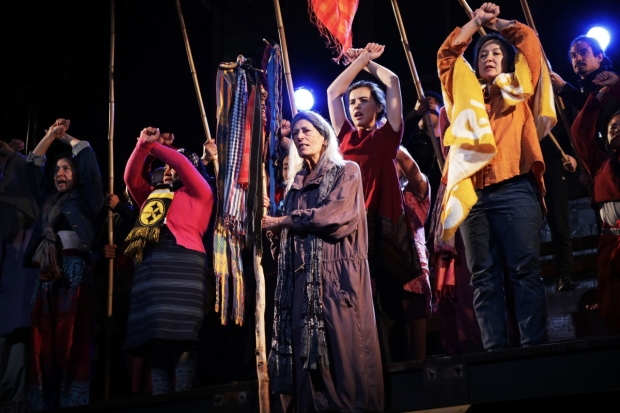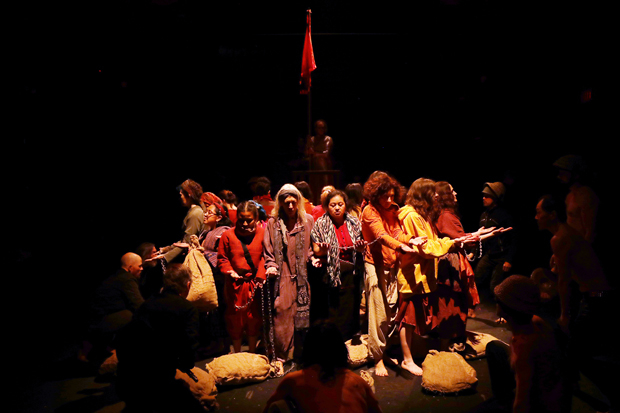First Person: Onni Johnson on the Global Impact of The Trojan Women Project
”The Trojan Women Project Festival” is now playing off-Broadway at La Mama.

(© Theo Cote)
La MaMa's version of The Trojan Women, directed by Andrei Serban, composed by Elizabeth Swados, and produced by Ellen Stewart, was a huge critical success when it opened in 1974. It changed the way people thought about theater and its power to challenge the way we see the world around us. In this way, it was very much a product of its time — a time of political unrest, protest against unpopular wars, and unpopular governments. Because of its use of ancient and nonliteral language, belonging to no particular place or time, its power caught the imagination of audiences around the world.
The director and composer were interested in exploring a universal language that was different from anything that existed. Swados found sounds in ancient texts and devised language that took on meaning of its own. Serban developed the staging with movements that swept the audience into the action of the play. They created a piece that could be understood by anyone, anywhere, which was critical to Stewart because that's what La MaMa was, and continues to be, about.
The Trojan Women Project began in 2014 with a question: What would happen if we shared the music, the words, the staging of our 1974 La MaMa production of The Trojan Women with a new generation of artists in other countries, particularly in places where there is a history of conflict or ongoing conflict? Would the themes of Euripides's play, plus the theatrical invention of La MaMa's production, have particular relevance in these communities? After 2,500 years, the story of the Trojan Women, of what happens to women, of what happens to women and children in war, of what happens to women with men who take power…those struggles, those stories are still going on.
We had colleagues in Guatemala, where a civil war went on for 30 years. It was, on paper, over in the early '90s, but in reality, it's not over. We developed partnerships with artists from Cambodia who were presenting a festival in NYC celebrating the rebirth of traditional arts from that country that were almost entirely wiped out during the reign of the Khmer Rouge. Through associations made by one of our team members in her work with the UN during the Balkan War, we established bonds with Albanian, Serbian, and Roma artists in Kosovo who were interested in using theater to cross political and cultural boundaries.
It was always a dream that one day we could bring these companies together. And now here we are — 19 international artists who have successfully gotten visas have come to New York to perform The Trojan Women alongside members of the original La MaMa production, as well as second- and third-generation company members, being directed once again by Serban, who is finding new, explosive meaning in every moment.
The Trojan Women is the centerpiece of an amazing 11-day festival that includes workshops, interactive live-feed conversations, and evenings of music and dance from each of the three visiting countries. What better way to celebrate the 100th birthday of La MaMa's founder, Ellen Stewart.

(© Theo Cote)








